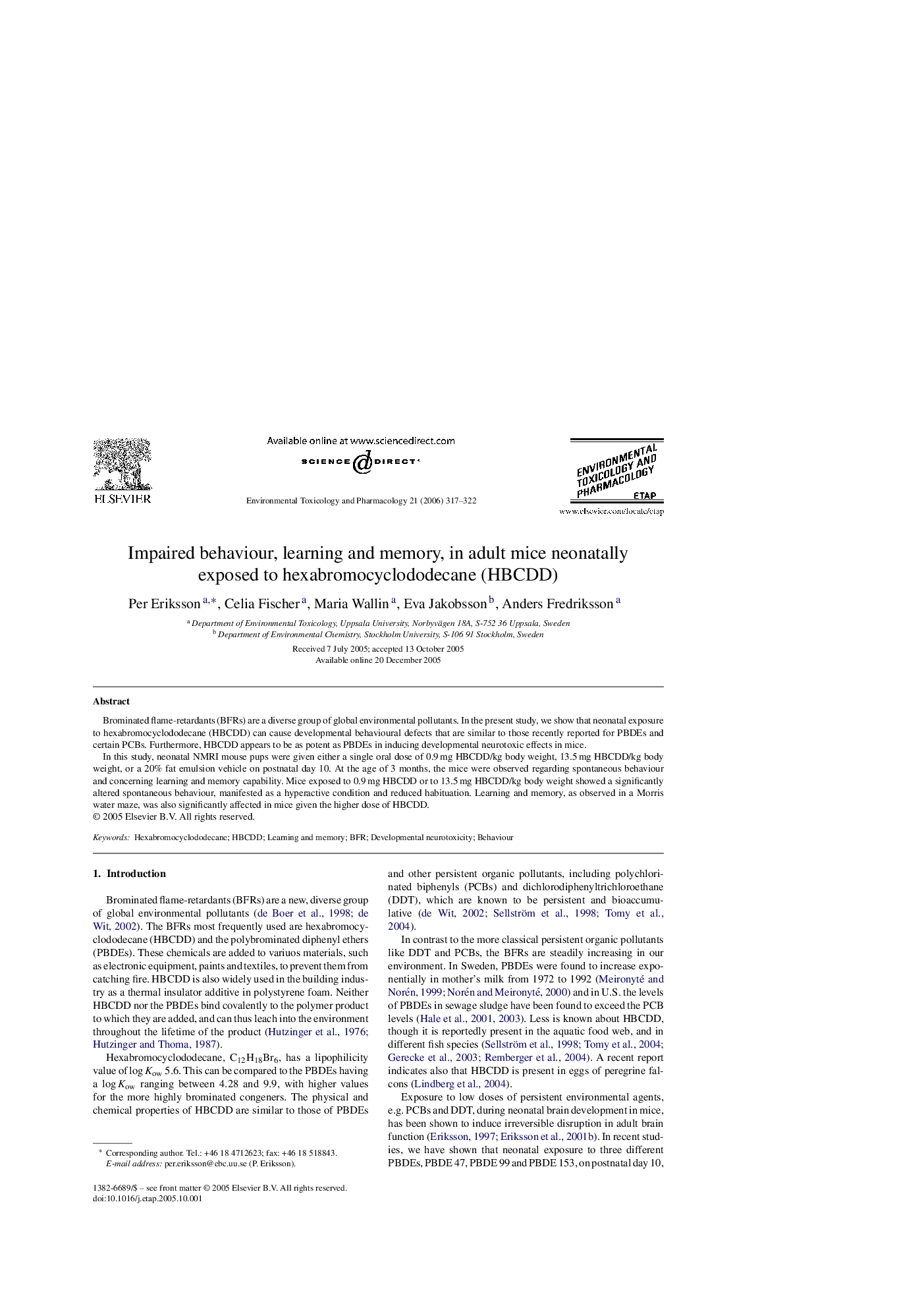| Article ID | Journal | Published Year | Pages | File Type |
|---|---|---|---|---|
| 2584057 | Environmental Toxicology and Pharmacology | 2006 | 6 Pages |
Brominated flame-retardants (BFRs) are a diverse group of global environmental pollutants. In the present study, we show that neonatal exposure to hexabromocyclododecane (HBCDD) can cause developmental behavioural defects that are similar to those recently reported for PBDEs and certain PCBs. Furthermore, HBCDD appears to be as potent as PBDEs in inducing developmental neurotoxic effects in mice.In this study, neonatal NMRI mouse pups were given either a single oral dose of 0.9 mg HBCDD/kg body weight, 13.5 mg HBCDD/kg body weight, or a 20% fat emulsion vehicle on postnatal day 10. At the age of 3 months, the mice were observed regarding spontaneous behaviour and concerning learning and memory capability. Mice exposed to 0.9 mg HBCDD or to 13.5 mg HBCDD/kg body weight showed a significantly altered spontaneous behaviour, manifested as a hyperactive condition and reduced habituation. Learning and memory, as observed in a Morris water maze, was also significantly affected in mice given the higher dose of HBCDD.
